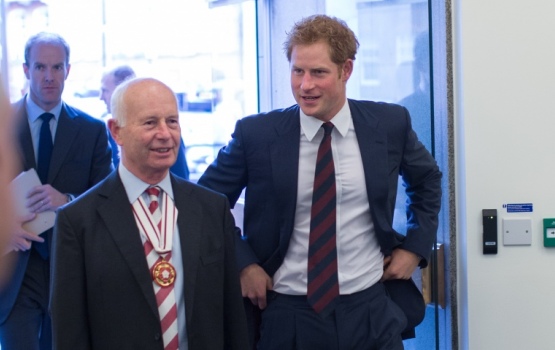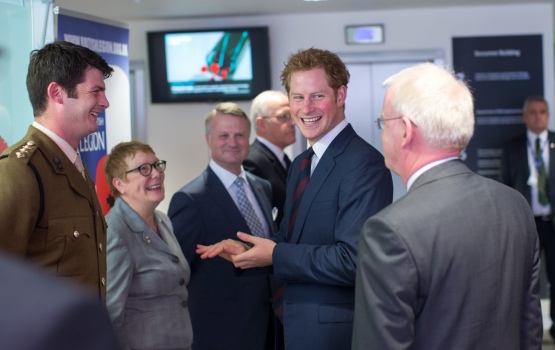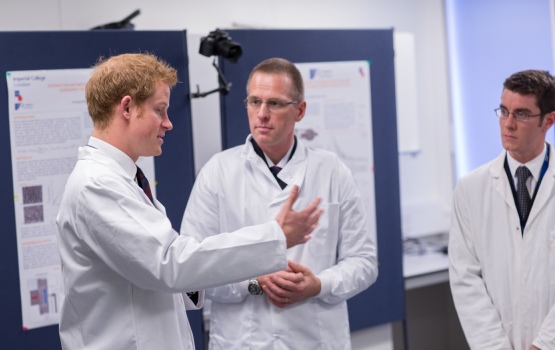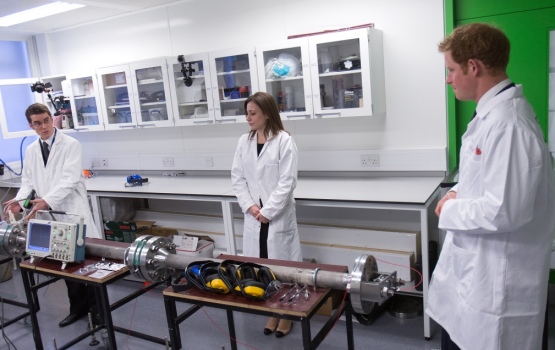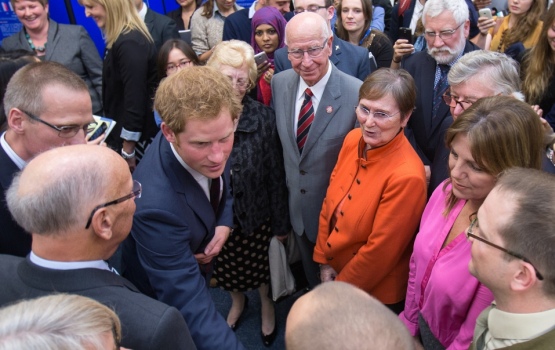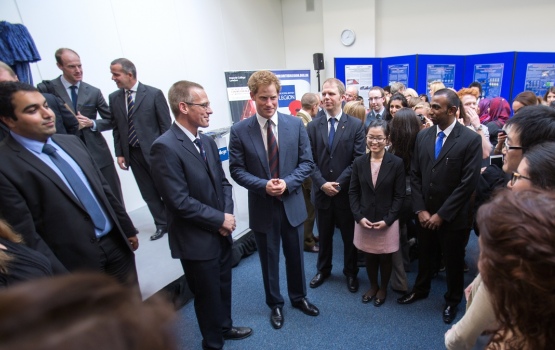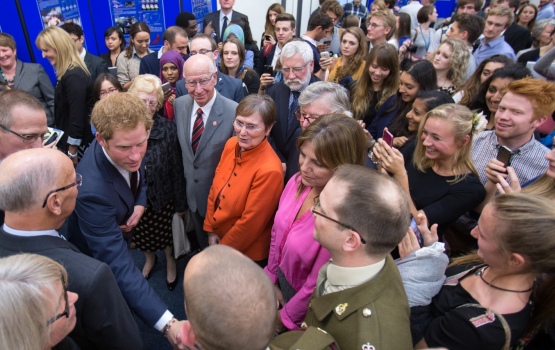CBIS Opens 'Officially'
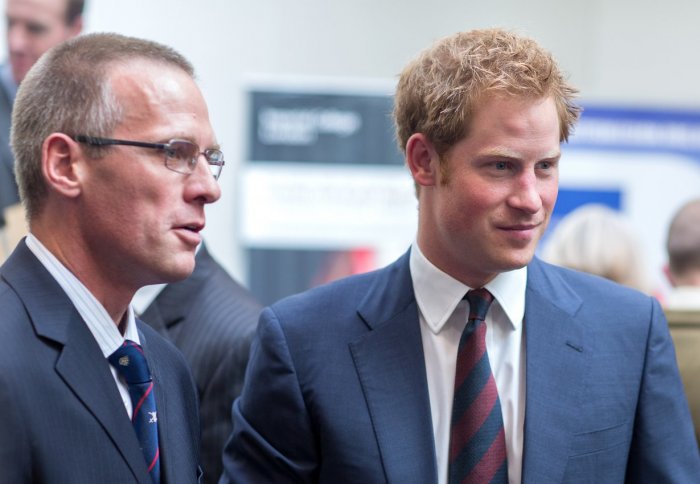
The RBL Centre for Blast Injury Studies was established in 2008 as 'Imperial Blast'. It has now been officially opened by HRH Prince Harry.
The 17th October was a momentous day for CBIS, marking both the official opening of the Centre by HRH Prince Harry and also being the day of CBIS's second networking event.
Prince Harry was introduced to the Centre by a guided tour of our laboratories. HRH almost managed to blend in with our CBIS researchers apart from the embroidered 'HRH' across the back of his white personalised lab coat.
Dr Theofano Eftaxiopoulou and Dr James Wilgeroth demonstrated the shock tube to HRH and explained how scientists put materials in the way of the shockwave to analyse its effects and thus allow better protective gear to be developed. Prince Harry also met with Professor Sara Rankin, theme leader for biology and therapeutics and Dr William Proud, theme lead of blast force protection who presented the split hopkinson bar device to HRH, which simulates how shockwaves from IEDs damage people at the cellular level. Following a blast impact, victims can experience extremely painful side effects such as bone forming inside muscle tissue, a process which is still poorly understood and being researched intensively by CBIS.
HRH was also shown the Anti-vehicle, Underbelly, Blast-Injury Simulator (AnUBIS) which allows researchers to investigate how roadside bomb blasts impact on the lower limbs, which could lead to better protective gear being developed in the future.
Before unveiling a plaque to commemorate CBIS’s official opening, HRH gave a speech addressing how important the research is at the centre:
"Today, I have had a brief insight into the work of the Centre including how injured cells are analysed. In the past I've met numerous service men and women injured in operations, many by IEDs and landmines. Their stories are harrowing and inspirational as I am sure you all know. Watching the IED simulation reminded me of the catastrophic trauma experienced by the human body during IED or mine-strikes. To me this makes their extraordinary stories of recovery all the more outstanding. This issue affects people on a global scale and whilst work at the Centre is strongly focussed on military casualties, its findings will no doubt also provide significant humanitarian benefits across the world. The Royal British Legion and Imperial have joined forces to tackle this issue head on. Without this partnership the Centre would quite simply not become a reality."
Scroll through the slideshow of Prince Harry’s visit to The Royal British Legion Centre for Blast Injury Studies at Imperial College London
The CBIS networking event ran in parallel with the official opening and included an array of exciting lectures about blast injuries and different aspects of the research taking place at the centre. Professor Anthony Bull opened the event with an introductory talk discussing the aims and intents of the centre followed by a splendid morning of presentations from speakers including Professor Sir Simon Wessely, Dr Mazdak Ghajari and Major James Singleton. The talks ranged from myths of military mental health and traumatic brain injury to battlefield injury clinical research curently occurring at CBIS.
The second half of the event included lectures given by Surgeon Captain Mark Midwinter CBE, Wing Commander Alex Bennett, Dr Tobias Reichenbach and Dr Spyros Masouros on a multitude of intriguing topics including rehabilitation research,blast induced hearing damage and measuring injury burden and outcome parameters in combat trauma.
The Network meeting poster competition was of extremely high standard with First prize being awarded to Scott Armstrong and highly commended awards being awarded to Ashton Barnett-Vanes and Nic Newell. Congratulation to all on your excellent submissions.
Article text (excluding photos or graphics) © Imperial College London.
Photos and graphics subject to third party copyright used with permission or © Imperial College London.
Reporter
Press Office
Communications and Public Affairs
- Email: press.office@imperial.ac.uk

